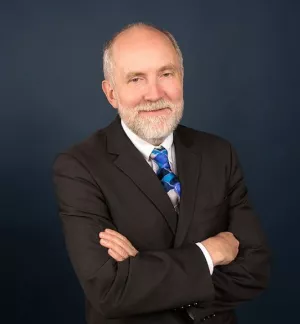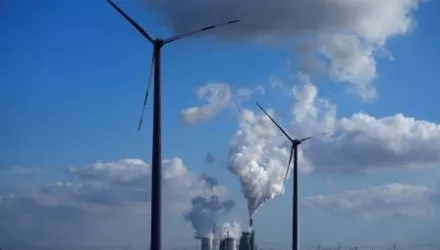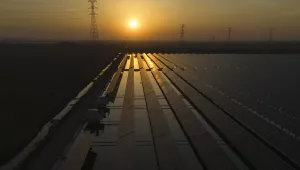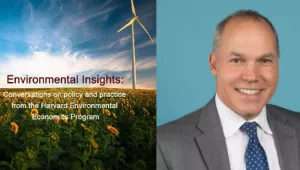September 19, 2001
George W. Bush
President of the United States
The White House
1600 Pennsylvania Avenue, NW
Washington, DC 20500
Vladimir V. Putin
President of the Russian Federation
The Kremlin
Moscow, 103073
Russian Federation
Director General Mohamed El-Baradei and IAEA General Conference Delegates
International Atomic Energy Agency
P.O. Box 100
Wagramer Strasse 5
A-1400 Vienna, Austria
Dear President Bush, President Putin, Dr. El-Baradei, and Delegates to the General Conference of the International Atomic Energy Agency:
We are appalled by the terrorist attacks last week in New York and Washington D.C. Our sympathies are with the innocent victims and their families and friends. But we are also extremely alarmed by this event. There can now be little doubt that if such terrorists obtain weapons of mass destruction in the future they will use them. It is imperative, therefore, that preventing terrorists from gaining access to the technologies and materials of weapons of mass destruction - including nuclear materials - be a high priority component of the new global battle against terrorism.
Such an effort must ensure that all weapons-usable nuclear materials worldwide are secure and accounted for, to stringent standards. The United States and Russia, as the holders of the largest stockpiles, bear a special responsibility to re-double their cooperation to secure and control nuclear warheads, materials, technology, and expertise. But in a world with knowledgeable and well-organized terrorist groups with global reach, inadequately secured nuclear material anywhere is a threat to all nations everywhere. Therefore, we call on all countries to increase their attention and financial and political support to these vital efforts as well.
Unfortunately, over the past five years, many of the major U.S.-Russian cooperative nuclear security programs have slowed, and many activities have been under-funded or had their timelines unnecessarily extended into the future. Bureaucratic disputes, disagreements on levels of access to facilities, and other political differences have eroded the vital U.S.-Russian nonproliferation partnership, hampering the implementation of many important international security programs.
But recent events have underscored the urgency of this mission and the demand for accelerated action. This will require increasing the pace and the scale of efforts to ensure that all warheads and potential bomb material are secure and accounted for, and that excess scientists and engineers with expertise relating to nuclear-weapons production receive effective conversion assistance.
We call on Russia, the United States, and the other nations attending the International Atomic Energy Agency (IAEA) General Conference this week in Vienna, to commit the resources necessary to achieve these goals in the shortest possible period of time.
The United States, Russia, and the rest of the international community should move urgently to take the following steps:
- Expand cooperative material protection, control, and accounting (MPC&A) activities in Russia. The U.S.-Russian program is now entering its eighth year. However, by the end of 2001, security upgrades will have been completed on less than 40 percent of the over 600 metric tons of highly-enriched uranium (HEU) and plutonium in the former Soviet Union located outside Russia's nuclear weapons stockpiles. And completion of the upgrades is not expected before 2010. Expanded funding is necessary to speed the overall pace of the effort, consolidate the nuclear materials into fewer facilities, initiate performance testing of installed security systems under a variety of threat scenarios, and to ensure that the security systems are maintained and sustained. The goal should be to ensure that all weapons-usable nuclear material is sustainably secured and accounted for as rapidly as technologically possible.
- Expand international cooperative efforts to interdict illicit trafficking of nuclear and other WMD materials and technologies, including increasing intelligence assets focused on this threat and expanding the sharing of intelligence.
- Expand international cooperative efforts to ensure high levels of security and accounting for nuclear material around the world - in particular doubling or tripling the budget of the IAEA's International Physical Protection Advisory Service.
- Move forward rapidly to place all plutonium and HEU no longer required for military purposes under IAEA verification, including reaching agreement rapidly on the specific arrangements and necessary resources.
- Accelerate efforts to reduce stockpiles of potentially vulnerable nuclear material, including accelerating the blend-down of excess highly-enriched uranium, and expediting the disposition of excess weapons plutonium. The U.S. and Russia have declared their joint intention to dispose of 68 metric tons of this plutonium but the disposition program has stalled over cost concerns and other issues. We urge the international community to provide the resources and leadership necessary to move quickly to reduce global stockpiles of excess plutonium.
- Undertake data exchanges among IAEA members on national nuclear material stockpiles, which would be updated regularly.
- Greatly increase help to Russia in downsizing its nuclear weapons complex and converting excess weapons workers to civilian work or helping them retire. While the United States has significantly reduced its nuclear weapons complex, Russia still maintains an enormous and unstable complex that has changed little since the end of the Cold War. Russia has stated that it wants to downsize this complex, but greater and more effective international support is necessary for alternative employment for the thousands of workers that will be displaced.
It is our sincere hope that the recent tragedy will galvanize accelerated and effective international action in these areas in the coming months and years. The inadequate funding and bureaucratic, administrative, and political disagreements that have slowed nuclear security cooperation in recent years seem petty in comparison to the devastating loss of life last week. We call on Russia, the United States, and the international community to renew their efforts to keep weapons of mass destruction from falling into the wrong hands.
Sincerely,
Matthew Bunn
Assistant Director
Science, Technology, and Public Policy Program
Harvard University
Former Advisor to White House Office of Science and Technology Policy
Kenneth N. Luongo
Executive Director
Russian American Nuclear Security Advisory Council (RANSAC)
Former Director, Office of Arms Control and Nonproliferation, U.S. Department of Energy
Frank N. von Hippel
Professor of Public and International Affairs
Princeton University
Former Assistant Director for National Security, White House Office of Science and Technology Policy
Bunn, Matthew. “Letter to Presidents Bush and Putin in Wake of WTC Attack.” January 1, 2001





